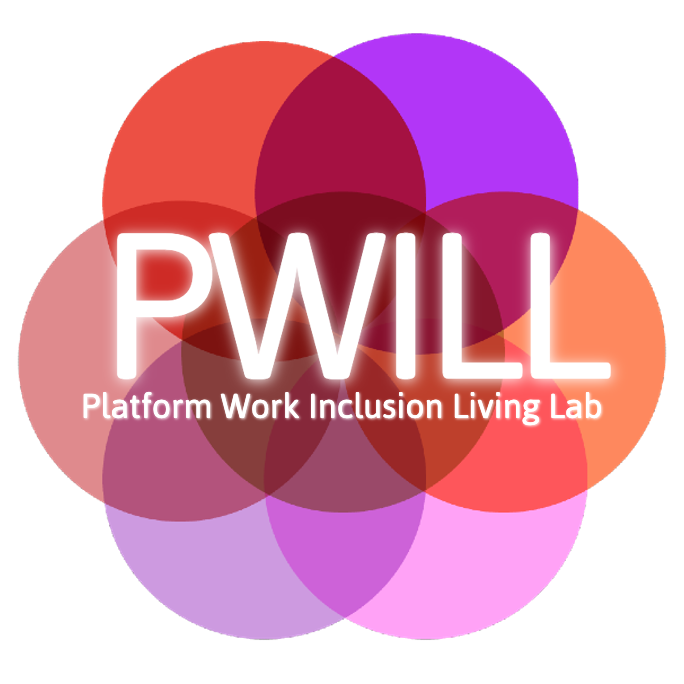Defining platform work
There is no clear definition of platform work available. Definitions and typologies of platform work vary considerably but rarely capture all forms of income-generating activity associated with digital media platforms. Consequently, there is no clear definition of platform worker.
The EU Proposal for a directive on improving working conditions in platform work (European Commission, December 2021) describes platform work as labour “performed by individuals through the digital infrastructure of digital labour platforms that provide a service to their customers.” In this proposal, a digital labour platform is defined as a service provider that meets the following conditions:
- work is allocated through electronic means;
- the work is provided at the request of a service recipient.
- it involves the organisation of work, regardless of whether that is performed online or on location.
The proposal then differentiates between a “person performing platform work” which is agnostic about contractual relationships between worker and platform and “platform worker” which is defined as someone with an employment contract or relationship with a platform as defined by law.
The problem of defining platform work in ways that are inclusive of its various forms but which still allows for demarcation of it from other forms of digitally mediated work needs urgent attention.
The EU definition precludes platforms that primarily connect actors within the marketplace but which do not ostensibly organise the work as well as platforms that simply enable the exploitation of assets or reselling of goods. However some of these types of platforms (eBay, Etsy, AirBnB) actually do manage and control work/labour, especially via algorithms.
It might also be pertinent to include unpaid user labour in content and data creation for digital platforms as this activity is an important generator of surplus value, but also because there are blurry lines between commercial online content creation and un-monetised user content creation.
The P-Will working groups identified a range of stakeholders associated with platform which can be loosely grouped into 4 main categories: (1) Users on both sides of the platform-mediated labour exchange (e.g. service recipients and service providers); (2) Organisations and NGOs which support and sustain workers in formal or informal collectives; (3) Regulators whose policies provide parameters and governance of platform work or who respond to the impacts of this form of labour; and (4) Platform companies which includes the economic actors as well as technology designers who site behind the work mediating technologies. An additional stakeholder spanning these categories is the media which plays a role in constructing the narratives about platform work. The final stakeholders are academics and researchers whose frameworks for investigation shape the platform economy landscape and our knowledge of it.
Within each of these categories are subcategories of specific stakeholders.
Each of these actors has a set of issues, problems or challenges related to the dynamics and nature of platform work as well as a set of needs that should be met to ensure an inclusive, equitable, and just labour environment.
The nature of platform work is broadly defined and constantly changing. We welcome suggestions of additions or amendments to this list. Please email
P-WILL@publicpolicy.rs
Produced by Working Group 1 members (WG leaders: Dr. Kylie Jarrett and Dr. Jing Hiah) with contributions from all working groups of the P-Will COST Action (CA21118)







